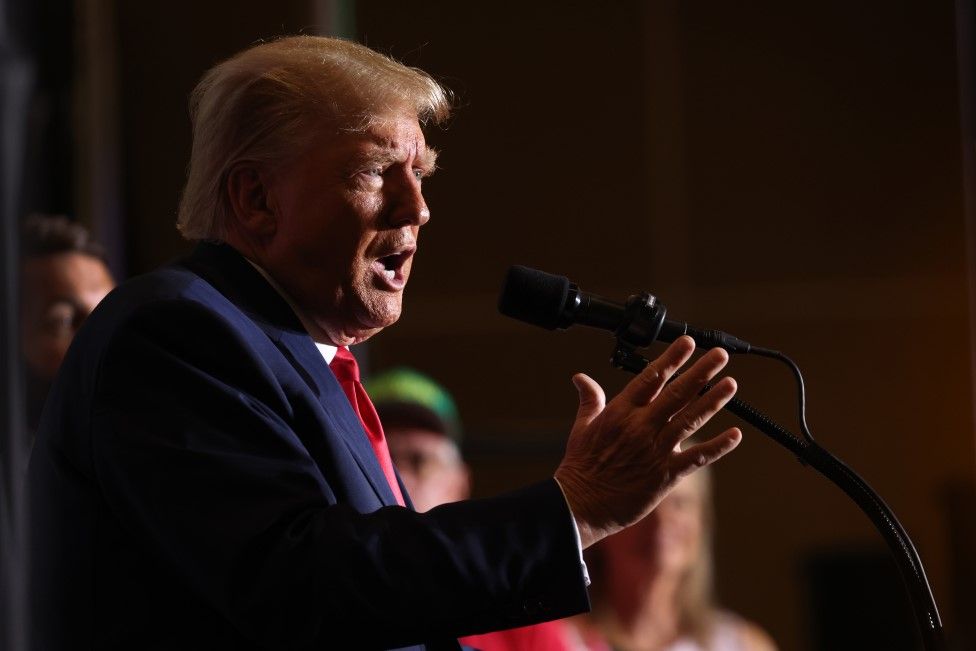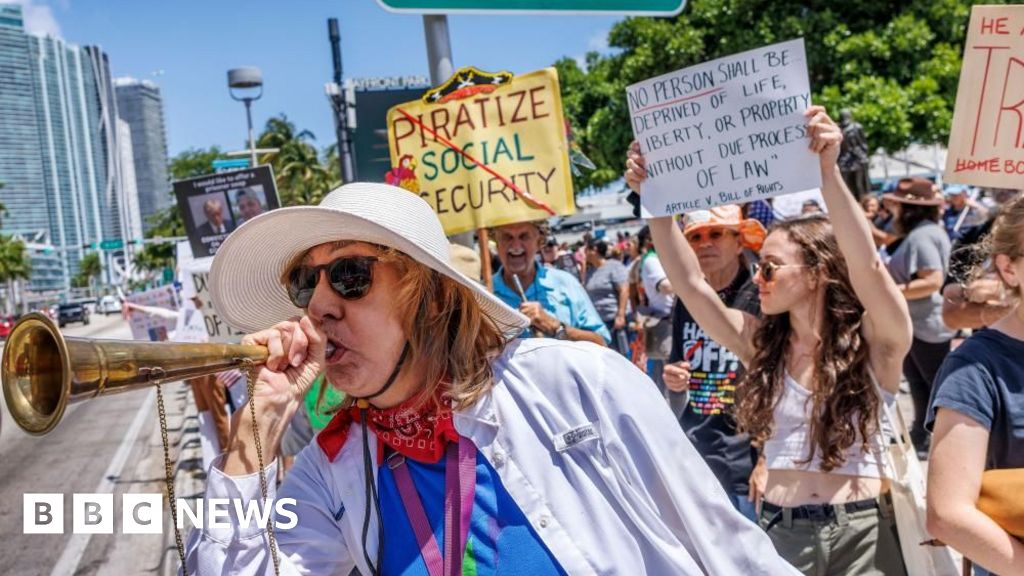ARTICLE AD BOX
 Image source, Getty Images
Image source, Getty Images
By Sarah Smith
North America editor
The January 6th attack on the capitol was "fuelled by lies", said special counsel Jack Smith at his brief news conference. Donald Trump's lies.
Throughout the 45 detailed pages of this indictment that theme of dishonesty is repeated again and again. It talks about "prolific lies about election fraud" and says "these claims were false and the defendant knew that they were false".
This will clearly be a key theme when this trial gets to court. Whether it leads to a conviction is unclear - some legal experts have said this is not the strongest case.
But these charges are, in my view, the most serious and potentially the most consequential that Donald Trump has yet faced. Not least because they relate to things that happened whilst he was still president.
The case in New York, which was brought in March, is about allegations that he illegally paid hush money to a porn star, Stormy Daniels, before he was president. The federal case relating to the classified documents Mr Trump kept at his Mar a Lago residence details events that happened after he left office.
But these latest charges - that he conspired to attempt to overturn the results of the 2020 election - revolve around things that happened when Donald Trump still inhabited the White House. He is alleged to have repeatedly lied to the American people whilst he was their president.
There is also a real-world impact laid out in this indictment which we have not seen in the other cases. Everyone saw the violence that engulfed the US Capitol on January 2021 and although Mr Smith stopped short of charging Mr Trump with inciting that mob, the prosecutor was clear in his statement to reporters where he sees the link.
Some US commentators have introduced another reason why they think these charges are the most serious. They see in Mr Trump's alleged conduct a threat to the ideals that underpin the bedrock of the country.
Not since the nation's founding has any president "voted out of office been accused of plotting to hold onto power in an elaborate scheme of deception and intimidation that would lead to violence in the halls of Congress," writes Peter Baker in the New York Times.
He goes on: "As serious as hush money and classified documents may be, this third indictment in four months gets to the heart of the matter, the issue that will define the future of American democracy."
Mr Smith also made a similar point in the indictment, that Mr Trump created "an intense national atmosphere of mistrust and anger, and erode public faith in the administration of the election".
But will any of this matter to voters?
All over America I have met countless numbers of Trump supporters who appear to sincerely believe that Donald Trump really did get more votes than Joe Biden and was cheated out of office.
That is one of the tenets of faith that solidifies his bedrock of support.
How will these people react when they hear detailed evidence that that Donald Trump knew there was no evidence of electoral fraud?
That he was told again and again, by his trusted inner circle, that he had lost the election? Can their faith withstand the weight of the evidence the prosecution will bring to court?
Watch: Trump charged with conspiracy to defraud US
Jack Smith says he is pressing for a speedy trial. So it could well be taking place right in the middle of the next presidential election. And Mr Trump is still the clear frontrunner to become the Republican party's presidential candidate.
So voters - and not just Trump's base but moderate Republicans, independents and crucial swing voters - will hear detailed allegation of Mr Trumps "dishonesty, fraud and deceit" whilst being asked to vote him back into office.
Its is such a cliché to describe events involving Donald Trump as "unprecedented".
But what other word is there is to describe the prospect of a presidential candidate running a re-election campaign at the same time as being prosecuted for attempting to subvert the results of the last election?

 1 year ago
159
1 year ago
159








 English (US) ·
English (US) ·